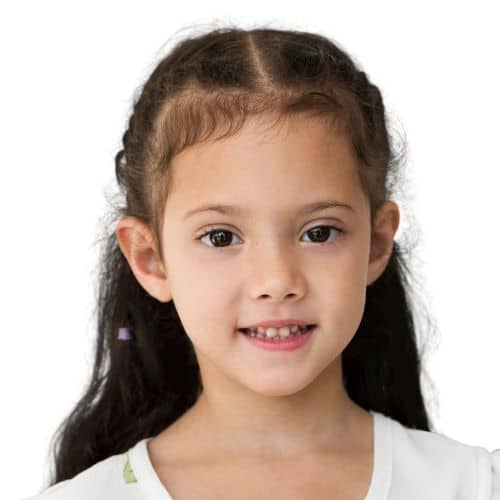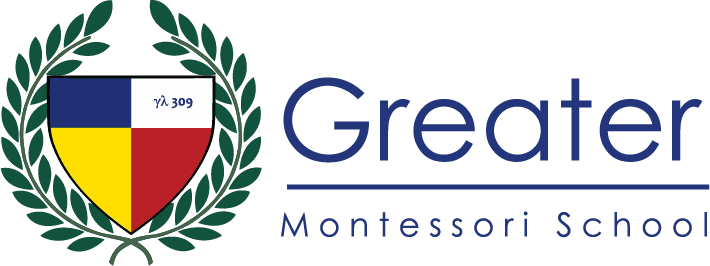Curriculum
“The goal of early childhood education should be to activate the child’s own natural desire to learn.”
- Maria Montessori
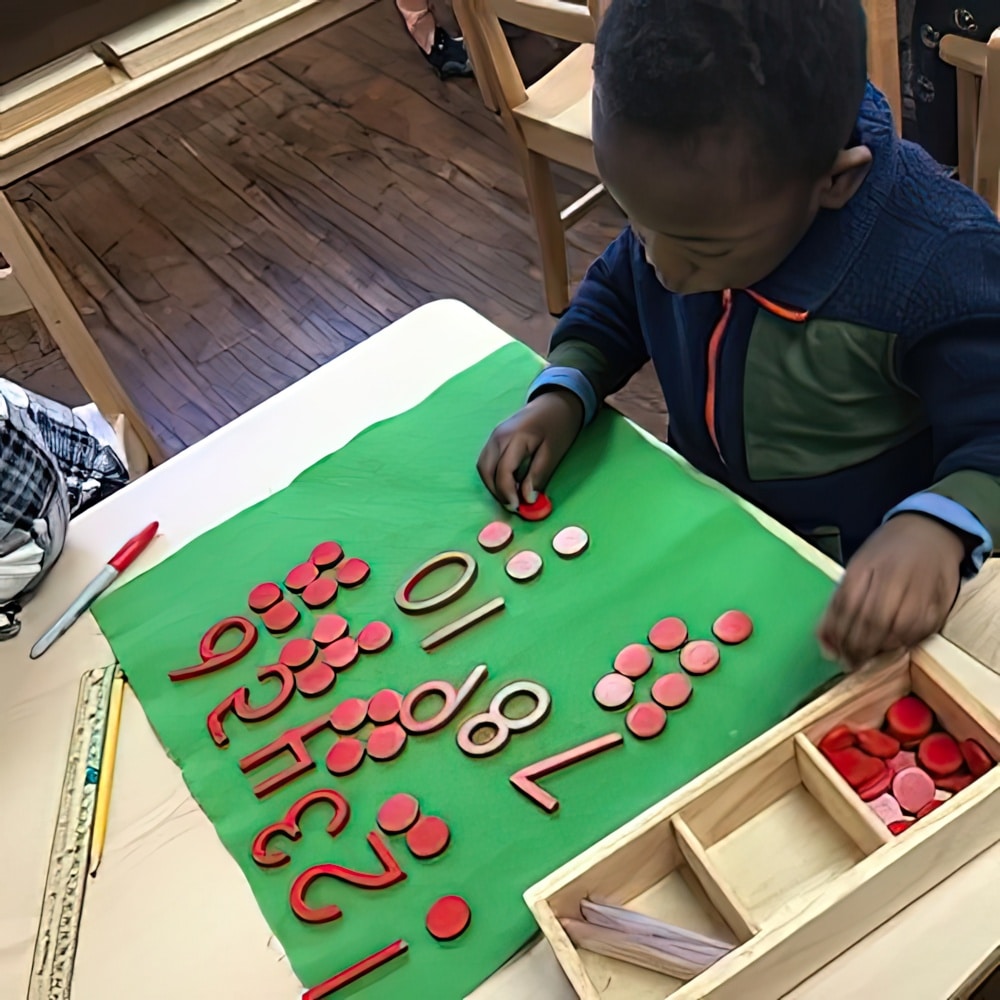
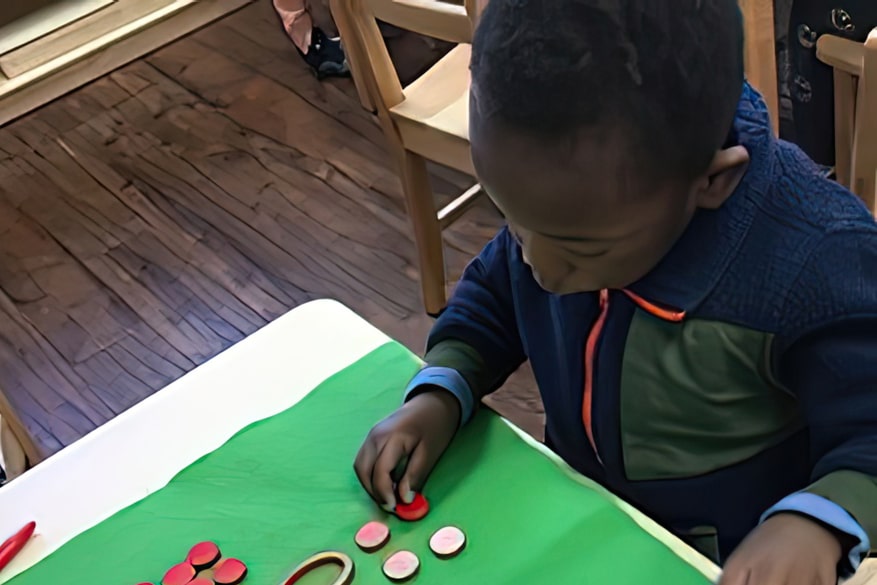
Montessori + A Whole-Child Approach = Future Success
What is the Montessori Method?
Montessori is a type of education that encourages hands-on learning, self-directed activity, and collaborative play. Montessori-certified teachers follow a curriculum that adapts to your child’s individual needs, abilities, and goals so they can progress at their own unique pace.
What Makes Montessori Different?
In the Montessori classroom, your child learns in a beautiful, naturally lit, soothing prepared environment that encourages and supports their learning journey. Specially designed, organized Montessori Materials welcome self-experimentation, self-exploration, and self-discovery.
How Do Montessori Students Thrive?
Your child becomes adaptable to diverse professional, personal, and academic opportunities through the independence and collaborative skills they gain from Montessori teachings. They have expert communication and problem-solving skills and the confidence and self-esteem to achieve all their goals and dreams.
What Can You Expect From An Authentic Montessori Education?
- Trained & Certified Montessori Teachers
- AMS Affiliation
- Multi-Age Classrooms
- Authentic Montessori Materials In A Prepared Environment
- Child-Directed Activities
- Uninterrupted Work Periods
- Whole-Child Development Practices
- Guide Students Towards Becoming Compassionate Global Citizens
- Grace & Courtesy Lessons
- Practical Life & Cosmic Awareness
Self-Directed Learning Tailored To Your Child’s Needs & Pace
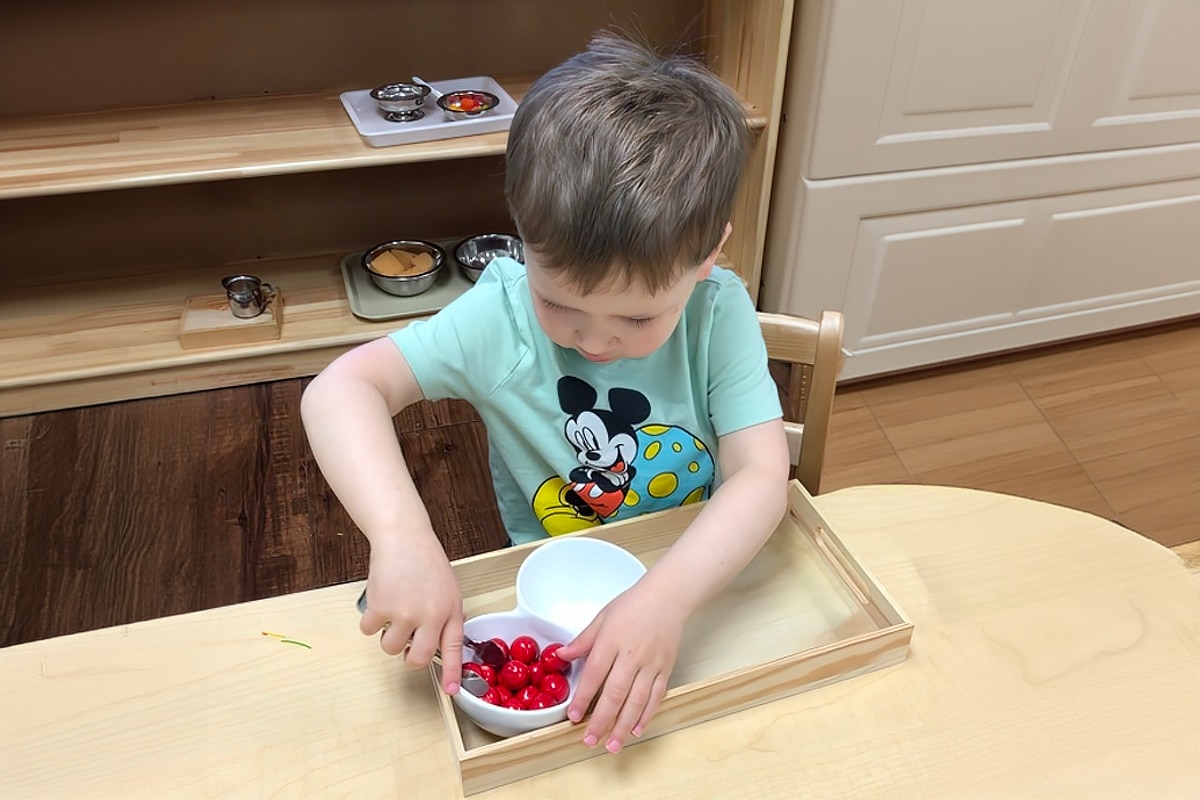
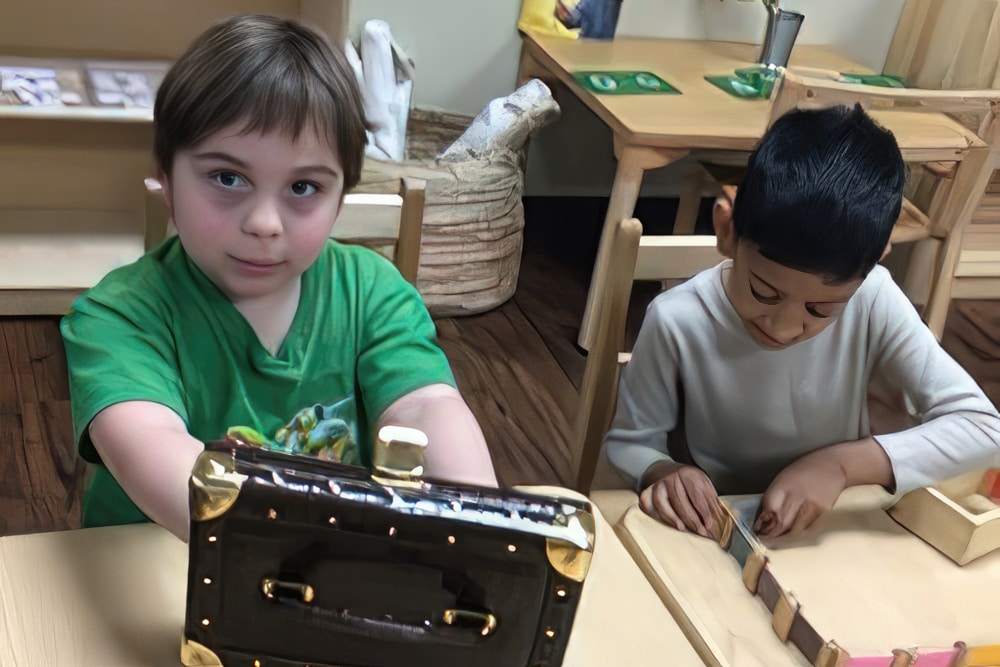
Social-Emotional Learning Equips Your Child For Life
An Authentic Montessori Education Prepares Your Child For Kindergarten
Your child learns in an authentic Montessori environment focusing on social-emotional learning, STEAM (science, technology, engineering, art, and math), literacy, and nature to ensure they become kindergarten-ready. Their curriculum, adopted from the late Dr. Maria Montessori, includes 13 areas of study:
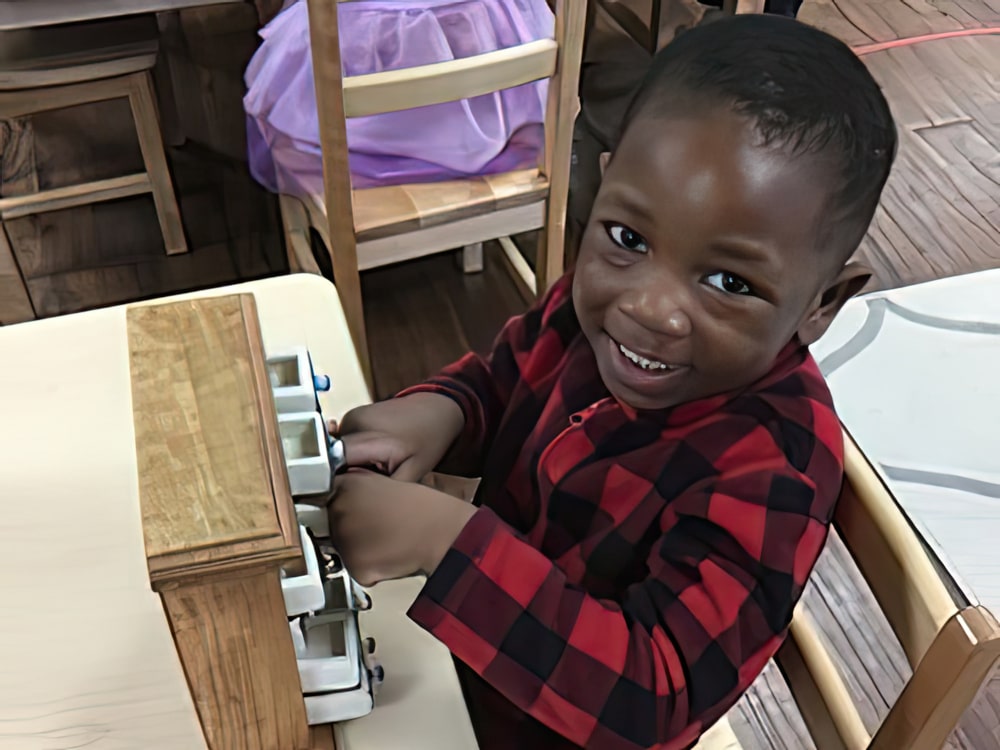
Practical Life Skills
Sensorial Development
Sensory materials refine the senses & develop cognitive skills such as thinking, judging, associating, & comparing.
Mathematics
Language Arts
Literature
Your child enhances their listening skills and develops critical thinking through storytime.
Geography/Culture
Because every child has an inherent curiosity about the world, teachers introduce them to physical and cultural aspects.
Science
Social Graces & Courtesies
Music & Movement
Foreign Language
Art
Themed Learning
Personal History
Children associate history with the awareness of themselves within the bounds of time. Your child learns how to use calendars, chart the days of the week, months, & seasons, and how time awareness is a vital part of life.
Your Child Heads Off To Kindergarten Reading & Ready For School—Guaranteed.
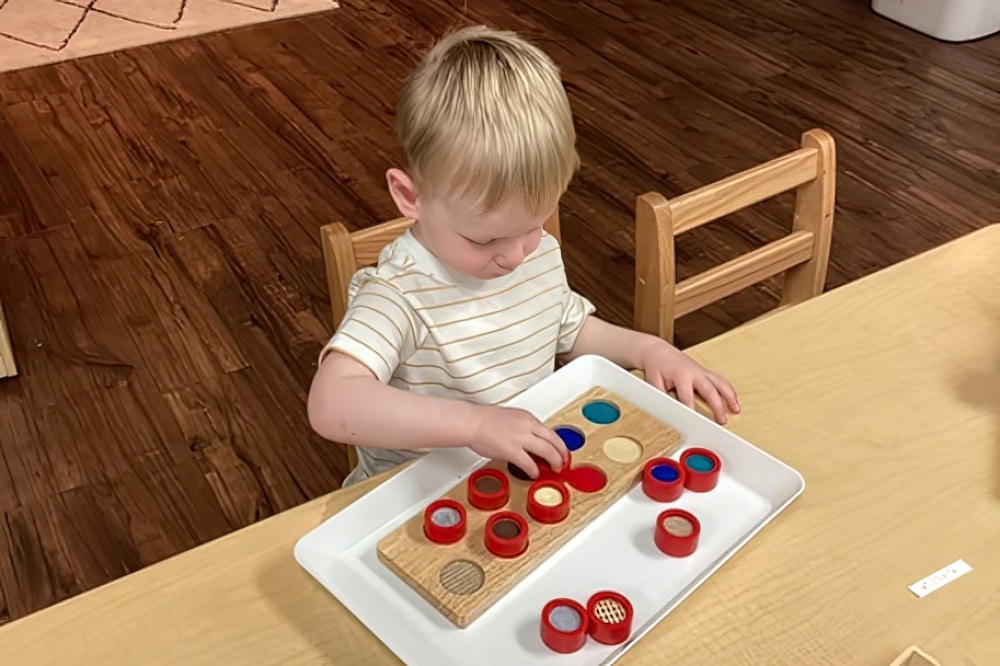
Enrichments & Specialty Classes Enhance Cognition & Motor Skills
Boost Academic Performance With Daily Outdoor Exploration
Your little one regularly takes their active discovery outdoors as they explore their natural environment, engage their curiosity, think critically, enhance focus, and develop strong self-esteem and confidence. Their outdoor environment features:
- Age-separated areas
-
Spacious playgrounds to run, jump,
& play games - Play structures to safely climb
- Onsite gardens that teach responsibility & practical life skills
- Fresh air & a healthy dose of the sun’s vitamin D to calm the mind
- An early love & appreciation of nature
- Lasting memories with friends
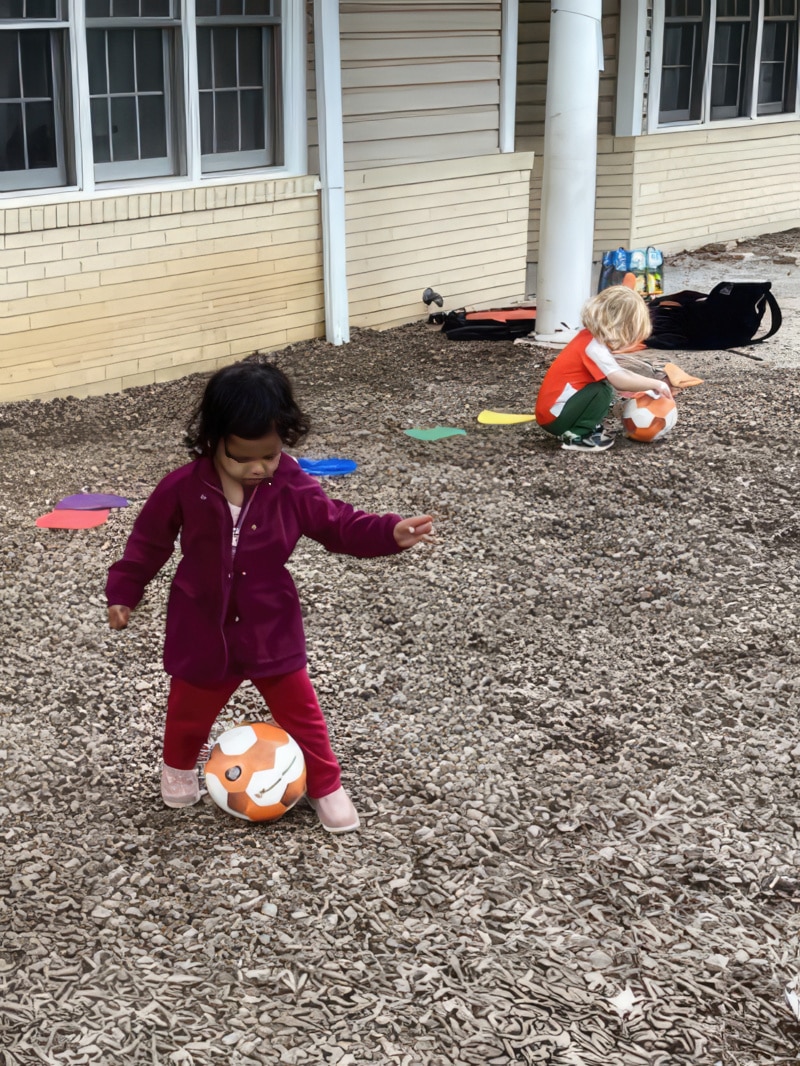
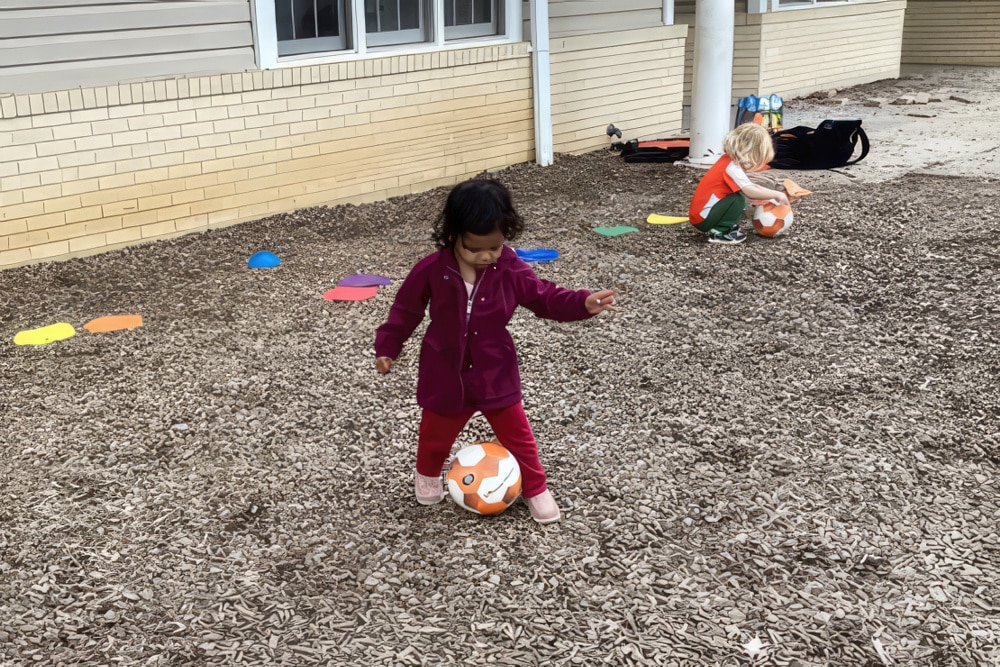
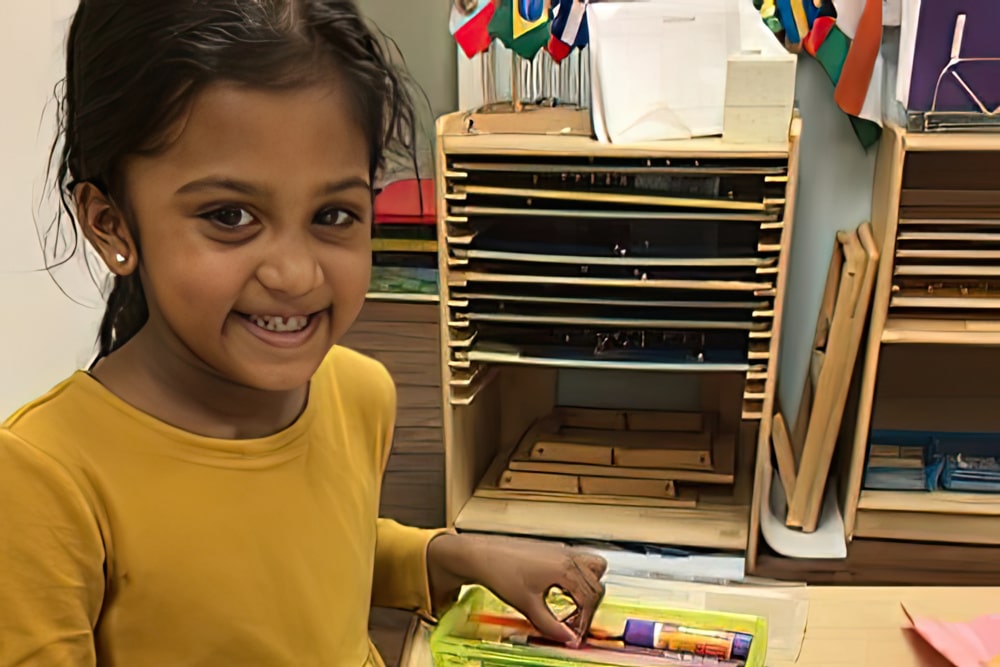
Onsite Parenting Courses For Guidance & Support
How Old Is Your Child?
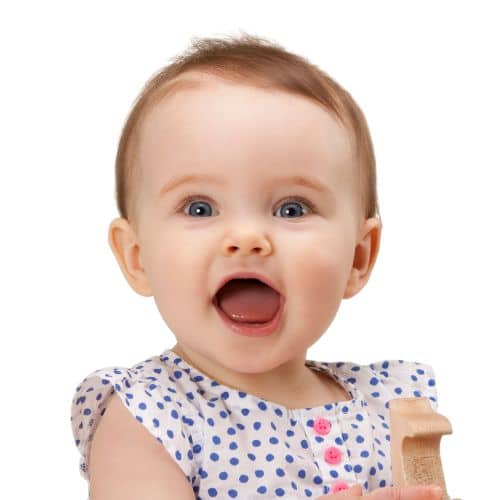
INFANTS & TODDLERS
6 weeks - 24 months
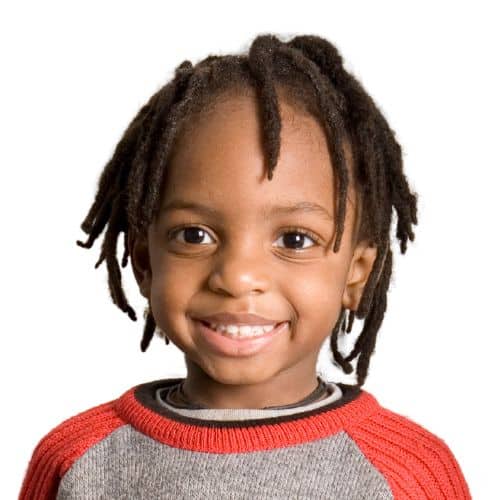
PRE-PRIMARY
2 - 3.5 Years
